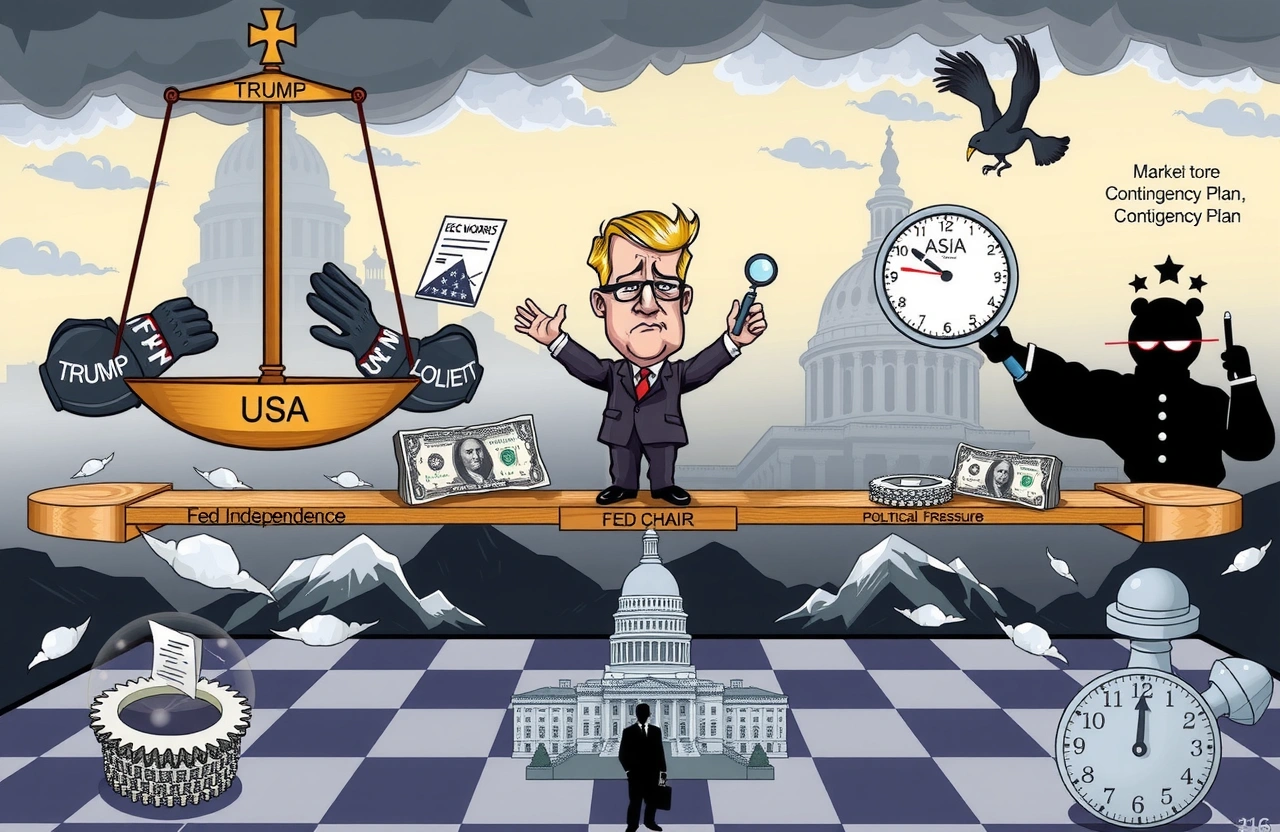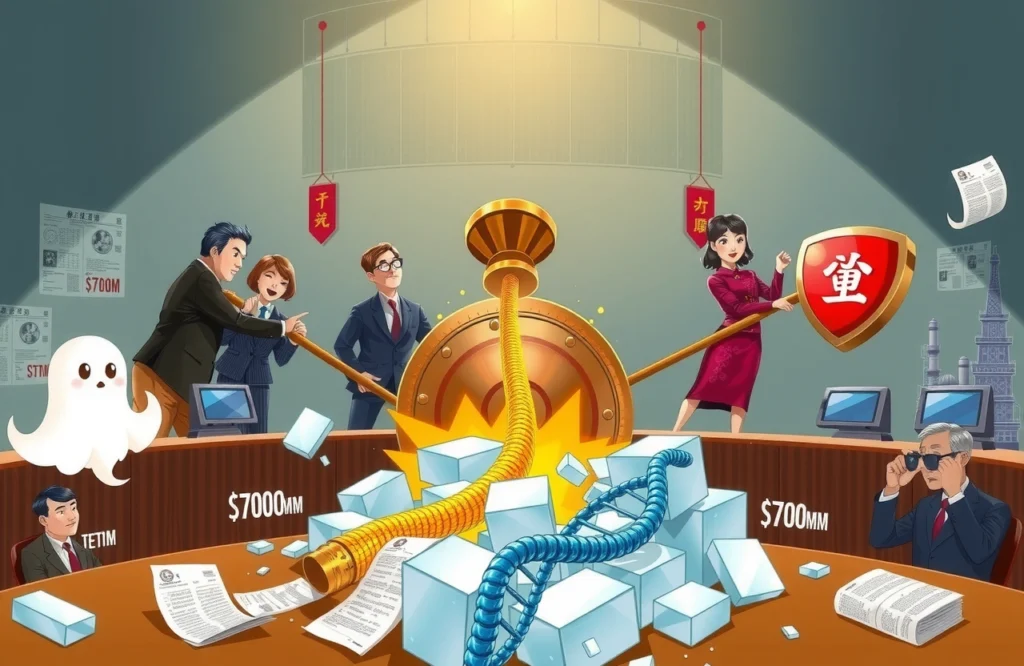The Unexpected Front-Runner Emerges
Senior economic adviser Kevin Hassett has unexpectedly emerged as the leading candidate for the next Federal Reserve Chair, according to exclusive Washington Post sources. This development signals President Trump’s decisive pivot toward installing a trusted loyalist at the helm of the world’s most powerful central bank. Hassett’s background as White House National Economic Council director positions him uniquely among contenders, combining academic credentials with firsthand experience navigating Trump’s unconventional economic agenda.
Breaking Down Hassett’s Candidacy Strengths
- Current role overseeing White House economic policy formulation
- Direct access to presidential decision-making circles
- Existing relationships with congressional finance committees
- Published economist background providing technical credibility
Trump’s Quest for Federal Reserve Alignment
President Trump has repeatedly expressed frustration with Federal Reserve policies during his administration, notably criticizing interest rate decisions under Jerome Powell. Multiple insiders confirm Trump seeks not merely a qualified economist, but someone personally aligned with his economic philosophy and responsive to direct input. This represents a stark departure from traditional Federal Reserve appointments prioritizing policy independence.
Historical Context of Presidential Influence
The Federal Reserve Chair selection process hasn’t witnessed such overt political considerations since the Nixon administration. Trump’s approach mirrors his judicial appointments—prioritizing loyalty while discounting conventional qualifications. Meanwhile, market analysts express concerns about how this selection strategy might impact monetary policy credibility. Economist Joseph Stiglitz warns: “Central bank independence serves as bedrock for currency stability—politicization threatens global confidence.”
The Competitive Landscape
While Hassett currently leads, three other candidates remain under White House consideration according to administration sources:
- Judy Shelton: Former Trump campaign economic adviser advocating return to gold standard
- Christopher Waller: Federal Reserve Board governor maintaining traditional monetary stance
- Larry Kudlow: Former NEC director with prominent media presence
Hassett’s Potential Confirmation Pathway
Senate Banking Committee members indicate cautious receptiveness toward Hassett’s potential nomination. Ranking Democrat Sherrod Brown acknowledged Hassett’s “substantive credentials” but emphasized thorough vetting regarding presidential influence concerns. The confirmation calculus remains delicate—Hassett must demonstrate independence while acknowledging Trump’s explicit desire for policy alignment.
Market Implications and Global Reaction
Currency markets reacted cautiously to leaked reports, with the dollar index falling 0.4% against major currencies. Bond markets displayed heightened volatility amid shifting rate expectations:
- 10-year Treasury yields rose 7 basis points
- Fed funds futures shifted toward rate-cut expectations
- Gold futures surged 1.2% reflecting policy uncertainty
Internationally, European Central Bank officials expressed apprehension about politicized U.S. monetary policy. An anonymous Bundesbank representative cautioned: “Global monetary coordination weakens when national banks prioritize domestic agendas over systemic stability. Reserve currency status carries responsibilities.”
The Public Perception Challenge
Public polling by Pew Research indicates only 41% of Americans approve of Trump’s Federal Reserve management. Potential nominee Hassett faces dual challenges: reassuring markets about Fed independence while implementing Trump’s desired accommodative policies. His congressional testimony patterns suggest possible frameworks:
Communications Strategy Precedents
- Framing policies as economic rather than political imperatives
- Emphasizing unemployment data responsiveness rather than inflation targets
- Publicly distinguishing operational decisions from presidential preferences
Potential Policy Trajectory
The next Federal Reserve Chair will inherit unprecedented economic conditions: potential recession signals combined with unemployment at near-record lows. Hassett’s academic research suggests three unconventional approaches:
- Aggressive quantitative easing favoring infrastructure investment
- Tolerance for temporary inflation spikes above conventional targets
- Regulatory deference toward fintech innovations under supervision
The Powell-Like Dilemma
Ironically, Hassett risks replicating Jerome Powell’s key predicament—navigating presidential directives conflicting with Fed conventions. Private conversations reveal Hassett anticipates gradual policy evolution rather than abrupt shift. He reportedly advocates maintaining institutional frameworks while adapting implementation to Trump’s priorities. This potential “different tactics, same strategy” approach worries traditionalists.
The White House confirmation timeline remains contentious despite Hassett’s front-runner status. Key Senate Republicans demand clearer nominee stance details before hearings commence. Treasury Secretary Mnuchin recently accelerated background checks while privately expressing confidence Hassett would preserve Fed credibility. Whatever the outcome, this selection proves every potential Federal Reserve Chair nominee faces unprecedented political constraints.
Monitoring these developments requires scrutinizing Senate Banking Committee movements and Federal Reserve Board vacancies. Financial professionals should prepare contingency plans balancing traditional guidance against unprecedented political influence. Subscribe to Treasury department updates as nominations advance.




